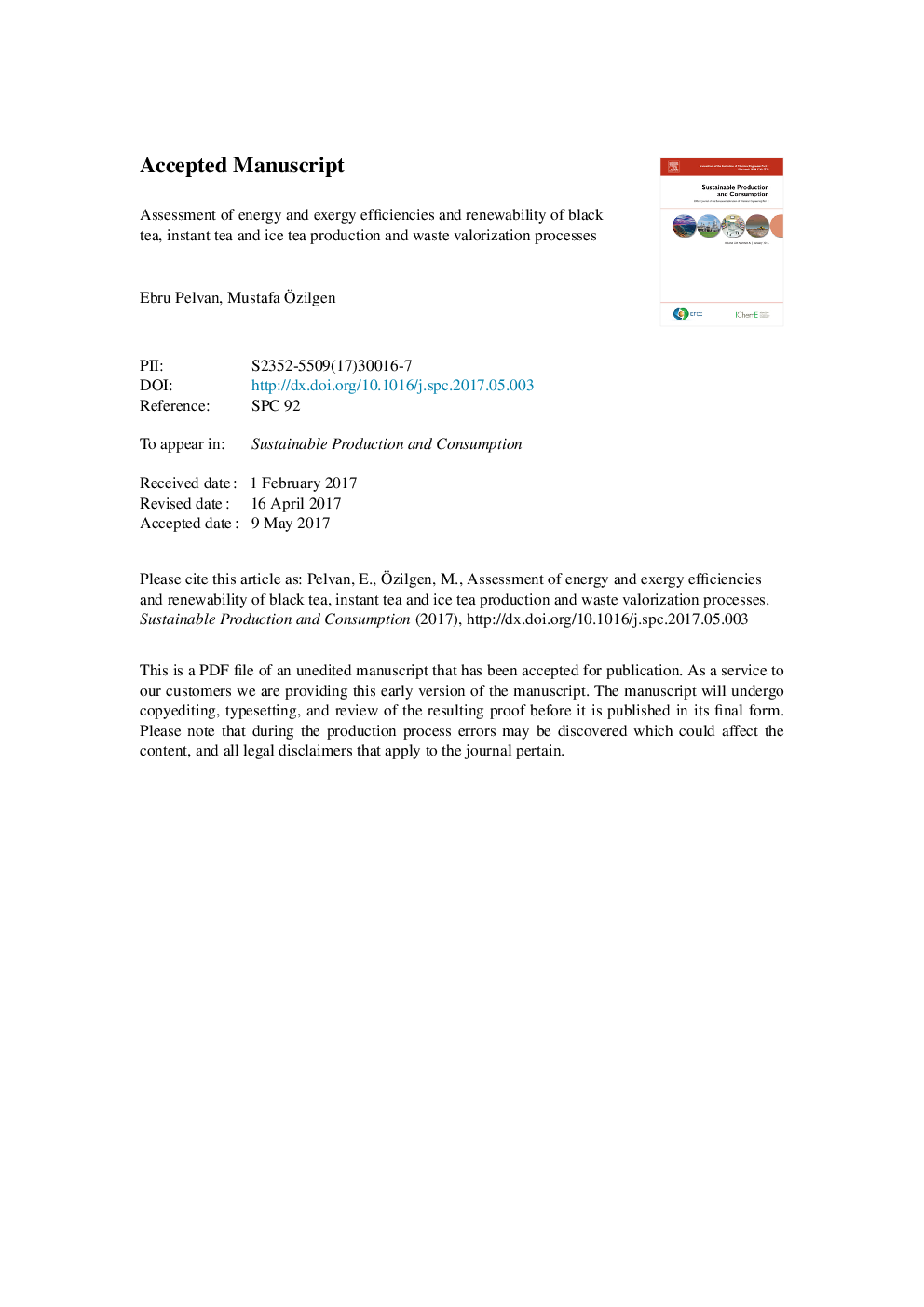ترجمه فارسی عنوان مقاله
ارزیابی اثربخشی انرژی و اکسرژی و قابلیت بازسازی چای سیاه، چای فوری و چای و فرایندهای ارزشگذاری زباله
عنوان انگلیسی
Assessment of energy and exergy efficiencies and renewability of black tea, instant tea and ice tea production and waste valorization processes
| کد مقاله | سال انتشار | تعداد صفحات مقاله انگلیسی |
|---|---|---|
| 120742 | 2017 | 70 صفحه PDF |
منبع

Publisher : Elsevier - Science Direct (الزویر - ساینس دایرکت)
Journal : Sustainable Production and Consumption, Volume 12, October 2017, Pages 59-77
ترجمه کلمات کلیدی
درجه تجمعی کمال، تجدید پذیری، تجزیه و تحلیل اگزرژی، پردازش چای، ارزش گذاری زباله،
کلمات کلیدی انگلیسی
Cumulative degree of perfection; Renewability; Exergy analysis; Tea processing; Waste valorization;

